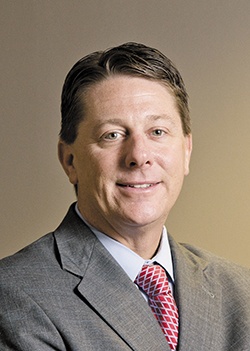Private Option Working for Arkansas Communities, Economy (OPINION)
by August 18, 2014 12:00 am 75 views

Gallup recently released a survey showing Arkansas had reduced its rate of uninsured by 10.1 percent.
The survey indicated that Arkansas had gone from a rate in 2013 of 22.5 percent to a rate of 12.4 percent in 2014. More than 183,300 Arkansans are now enrolled in the private option.
In Benton and Washington counties alone, more than 18,000 individuals have signed up. With this success and the corresponding decrease in the uninsured rate, the private option is working for Arkansas communities and for Arkansas’ economy.
Rather than expanding the old Medicaid program, the private option allows Arkansans with incomes at or below 138 percent of the federal poverty level ($32,913 annual income for a family of four; $16,104 for an individual) to purchase private health insurance. This is thanks to Arkansas legislators who knew they had to comply with new federal health care laws, but keep Arkansas true to its independent spirit. These legislators developed the nation’s first private insurance alternative to expanded Medicaid.
By reducing hospitals’ uncompensated care (care provided to, but not paid for by, uninsured patients), the private option gives Arkansas hospitals a fighting financial chance to keep their doors open. Beginning in 2010, a series of federal laws were enacted that will result in $2.5 billion in cuts to Medicare reimbursement to Arkansas hospitals over the next 10 years. Our Arkansas legislators can do nothing to change these severe cuts hospitals are suffering under federal law. What they can, and did, do at the state level is offer hospitals a way to be paid for the services they previously provided without being paid.
These payments will not offset Medicare cuts at the federal level, but they definitely help keep Arkansas hospitals open to serve their communities by reducing uncompensated care.
No business can keep its doors open if its services are not paid for. Without the private option, Arkansas hospitals were facing more than $400 million in uncompensated care in 2014. Our estimates show that the private option will reduce this figure by more than half.
Reducing the burden of uncompensated care is critical for the long-term survival of community hospitals — particularly rural hospitals. States such as Georgia and Alabama, which did not expand Medicaid or develop their own version of the private option, have seen multiple rural hospital closures. These hospitals are buckling under the weight of uncompensated care.
There are 104 hospitals in 54 of Arkansas’ 75 counties. In addition to around-the-clock care for individuals and families who fall victim to illness and injury, these hospitals are the go-to place when disaster strikes and serve as the safety net for our friends and neighbors who need care or assistance.
Hospitals also are the driving economic engines for many of the communities they serve and usually are among the top employers in their counties. Our Arkansas hospitals employ about 42,000 Arkansans with a payroll of about $5 billion. Healthy hospitals are good for the Arkansas economy.
Most importantly, the private option is good for health care. The private option is already working to give Arkansans access to care. Previously uninsured patients are now insured and able to get the right care, in the right setting, at the right time. Our Arkansas hospitals already are seeing people get essential care they could not have afforded without their new insurance coverage.
The Arkansas Hospital Association thanks the governor and bi-partisan state legislative leadership for having the foresight to create and implement the private option, and we look forward to its continued success. It is an innovative, Arkansas solution that is leading to healthier families, a healthier workforce and stronger communities in our state.
Bo Ryall is president and CEO of the Arkansas Hospital Association. AHA represents 104 member hospitals across the state. He can be reached by email at [email protected].
